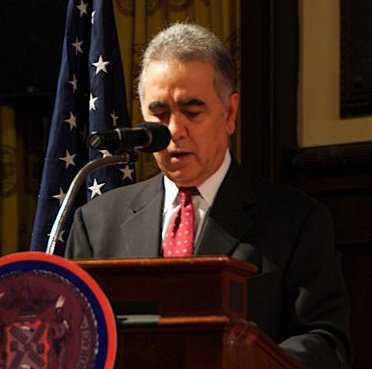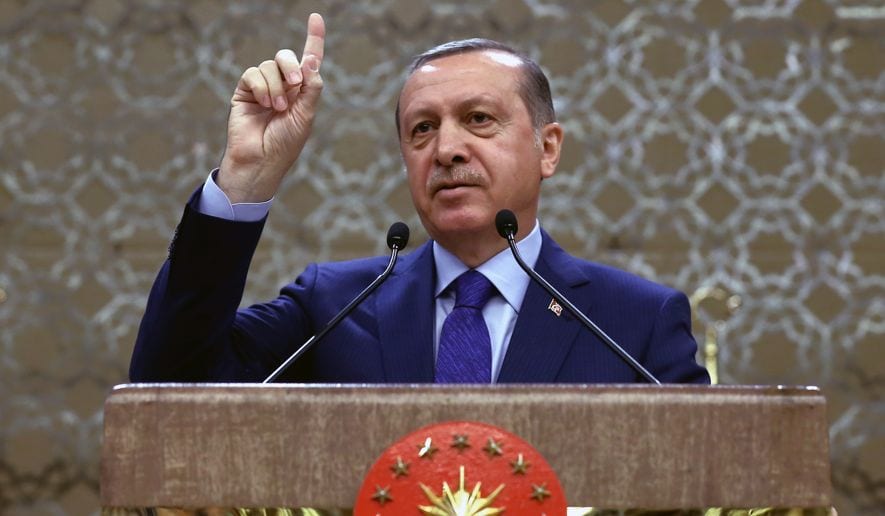
The Turkish government has been receiving a succession of bad news in recent weeks. Its persistent policy of denial of the Armenian Genocide suffered serious setbacks when the Foreign Affairs Committee of the U.S. House of Representatives, the Swedish Parliament, and Catalonia’s regional Parliament in Spain adopted resolutions acknowledging the Armenian Genocide.
Turkish denialists are terrified by these official acknowledgments on the eve of the 95th anniversary of the Armenian Genocide. They are even more alarmed by the fact that the Parliaments of Bulgaria, Israel, Serbia, Spain, and Great Britain are about to consider similar resolutions in April.
The Turkish leadership was under the mistaken impression that the Protocols signed with Armenia six months ago would end any further action on the Armenian Genocide by the international community. In fact, Turkey had viewed these Protocols as a last ditch effort to stem the tide of such acknowledgments in the future. Its devious strategy almost worked, as the genocide resolutions in both Spain and the U.S. Congress were adopted by a mere one vote majority. The opponents of these resolutions specifically cited the “reconciliation” between Armenia and Turkey as their reason for voting against them.
Alarmed by these developments, and distracted by serious internal problems, the Turkish government has initiated, perhaps a little too late, a series of actions, hoping to prevent further defeats on the Armenian Genocide issue.
These actions range from using harsh, bullying tactics against countries that dare to acknowledge the Armenian Genocide, and a soft approach to mislead the international community into thinking that the Turkish government is being more accommodating towards Armenians.
Among the Turkish bullying tactics against countries acknowledging the genocide are:
— Recalling its ambassador;
— Canceling military contracts; and
— Boycotting the purchase of consumer goods.
Last week, Turkish officials added a new twist, threatening to sue the more than 20 countries that have already acknowledged the Armenian Genocide. This is one of the many bluffs Turkish leaders use from time to time to discourage additional countries from acknowledging the Genocide. I truly hope that Turkey would carry out this threat, as it would create worldwide publicity for the mass crimes committed against Armenians. Any fair-minded non-Turkish court would immediately dismiss such a frivolous lawsuit!
Turkey’s more clever tactics, using soft gloves at the advice of western public relations agents, include:
— Renovating a couple of historic Armenian churches, while thousands of others are converted to mosques, stables, residences or simply ruined.
— The “gracious” gesture of allowing religious services to be performed once a year for a limited number of people and limited duration to be determined by Turkish authorities, at the 10th century Holy Cross Armenian Church at Akhtamar Island, on Lake Van. This world famous house of worship is officially designated as a touristic site, not a church!
— Reviewing the possibility of lifting the ban on children of refugees from Armenia to attend private Armenian schools in Istanbul.
— A “show” meeting held last week between Prime Minister Erdogan and the head of Istanbul’s Sourp Prgich Armenian hospital, who was wrongly named as the leader of Turkey’s Armenian community. This meeting was more akin to a slave being summoned by his master. Afterwards, Bedros Shirinoglu dutifully told the Turkish media that “1915” was nothing more than a feud between two loving friends, instigated by third parties! He said that his grandfather was among the victims, but so were many Turks! Shirinoglu blamed himself and asked for Erdogan’s forgiveness for the latter’s threat to deport 100,000 Armenian refugees, saying that the inflated figure was his own fault, not the Prime Minister’s.
— Finally, Foreign Minister Davutoglu came up last week with a new ploy to divide the Armenian Diaspora, after having limited success in his attempt to split the Diaspora from Armenia with the Protocols. Davutoglu announced that the Turkish authorities will initiate “dialog” with “reasonable Diaspora Armenians,” meaning Armenians who do not mind selling out the Armenian Cause for their own ego and personal gain. The Turkish Foreign Minister stated that contacts will be established with Armenian “intellectuals, universities, and civil societies.”
Clearly, Turkish officials are resorting to all possible means, including the continued exloitation of the defunct Protocols, to discourage additional countries from acknowledging the Armenian Genocide.
Armenia and the Diaspora must remain vigilant and united, especially in the weeks leading up to the 95th anniversary of the Armenian Genocide, in order not to fall victim to Turkish machinations, inducements and entrapments.






